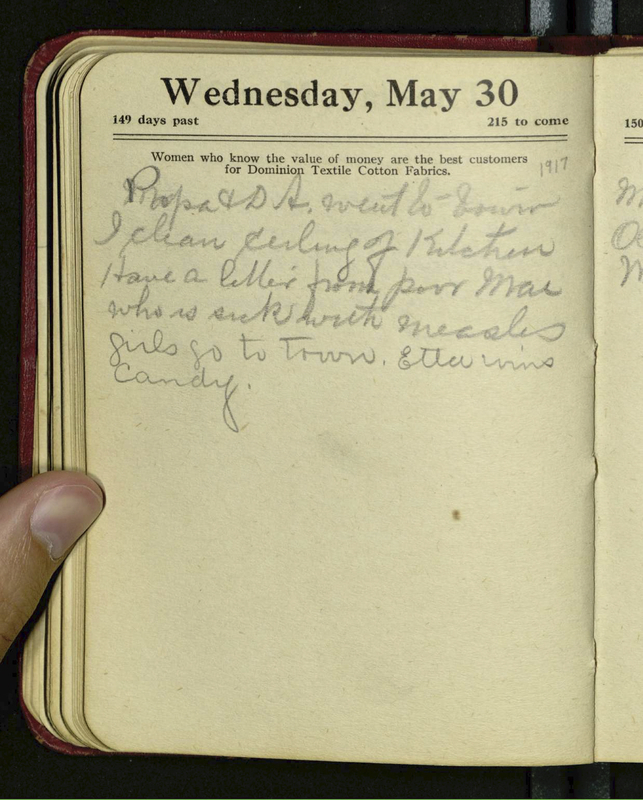Sickness, Disease, and Death
Throughout McDonald’s diary, there are extremely short mentions of a number of contagious infections alongside influenza, and more familiar health conditions such as appendicitis. Only once does she openly connect fear and anxiety to the manifestation of sickness in herself and loved ones. Apart from that, we are left to intuit her worry ourselves. A section from her profile from the University of Guelph's Rural Diary Archives supports our assumption of her familiarity with death and disease: one of her six children had suffered “brain damage from a bout of red measles.” As a lower-class farmwife in a countryside with harsh winters, McDonald was consistently surrounded by pathogenic threats against human existence, which then escalated with the Great Influenza. Tolerating it was essentially a way of life.
A second telling aspect here is the evolution of medical terminology. The language in which she addresses or recognizes certain illnesses can help indicate their etymological roots and localized geographical usages.



